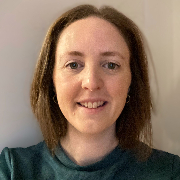We’re expanding our Medical Research Council (MRC) board and panel observer scheme so that researchers transitioning to independence can also apply.
Previously open only to MRC fellows, the scheme offers an opportunity to go behind the scenes of a board or panel meeting, to watch funding decision-making in action. Read the experiences of two observers, then apply via our website.
There’s a rigorous process behind funding decisions

Georg Kustatscher in his lab. Credit: George Kustatscher
Georg Kustatscher:
Before attending the MRC Molecular and Cellular Medicine Board meeting, the funding process was a bit of a black box for me. I didn’t really understand what happened to my proposals once I submitted them. The meeting, and the briefings from MRC staff before and after, illuminated the various stages of the whole process. Right from peer review and triage to board assessment and final ranking. For example, I was unaware of the “introducers” role. There are two or three board members assigned to each application. They present the application at the meeting, focusing on its strengths and weaknesses aligned with the assessment criteria.
Katherine Staines:
Observing the MRC Population and Systems Medicine Board meeting was a unique and useful experience. I learned some technical aspects about how the board runs. For example, all board members score the grants (from one to 10). Then the final score is based on the median score from all the board members, not the mean score or the reviewer scores. It was also interesting to witness that every board member is involved in the grant discussion. It’s not just those with specific expertise in the field.
Board members genuinely want to fund your application
Georg:
I hadn’t really considered the process from the funder’s and board’s perspective before. I now appreciate much better that the panel must strike a delicate balance. This is between fostering groundbreaking research with significant health impacts and careful investment to minimise the risk of unfruitful projects.

Katherine Staines at work in the lab.
Credit: Katherine Staines
Katherine:
The experience changed my perspective on the board’s approach. I think a common misconception is that funding panels are looking for reasons not to fund your research. But from observing the board meeting, I would say it is the opposite. I came away reassured that there is a genuine desire to fund applications. The board meeting discussion was a positive one, particularly for new investigators. There was a lot of emphasis on making sure that new investigators receive useful feedback from the board, whether they are successful or not.
Board members can help improve your application
Georg:
For my next grant application, I will ensure that my proposal is not only innovative and scientifically exciting but also feasible and achievable. Additionally, I will aim to clearly outline the broad benefits for medical research.
Katherine:
Before observing the meeting, I had not appreciated the emphasis placed on the ‘response to reviewers’ during the board meeting discussion. It is a great opportunity to address the reviewers’ questions and clarify any issues. The board really appreciated humility in the responses. For example, when the applicant acknowledged and fully considered their suggestions, rather than providing vague answers. I will ensure that I write my ‘response to reviewers’ clearly and get my colleagues to look over it before submission moving forward.
Watching a board meeting can help you write a better application
Georg:
The experience helped me to better understand the grant funding process and its decision-making aspects. This will likely enable observers to write more effective applications, for example due to an improved understanding of the roles of reviewers and panel members. It is possible that this could not only increase the likelihood of securing funding but also streamline the overall process. Submitting clear and well-considered applications could simplify the workload of reviewers and board members. This would ultimately benefit all parties involved.
Katherine:
I’d really recommend observing a board meeting to fully understand what happens after you submit your grant. I think there are a lot of common misconceptions. Observing the board will give you a clear insight into how decisions are made.
Write your application in plain English so everyone can understand it
Georg:
I was surprised by the size and diversity of the panel. Since every board member votes on each application, presenting the project with clarity and making it accessible to researchers from diverse fields is essential. Additionally, since every aspect of a proposal is scrutinised, it is important to carefully align the requested resources with the proposed experiments. Also to make sure that the research team has the expertise to successfully complete the project.
Katherine:
My biggest pointer would be to make sure you write your application for every person on your board or panel. All members discuss the application and score it. So, it’s vital that everyone understands the importance and the approach.
Find out more
Under the new scheme, eligible researchers can apply to observe one of our research boards or translational panels. As part of our mission to increase the diversity of people in research we’re especially encouraging and prioritising interest from those in underrepresented groups. Find out more about eligibility and how to apply.
We’ve also launched a new Board and Panel Associates Scheme. This scheme is a two-year programme for individuals from underrepresented groups who are actively transitioning to independence and leadership. The scheme aims to nurture diverse talent and support the development and retention of researchers. It offers experience of peer review, the opportunity to serve on an MRC funding board or panel, along with support, mentorship and training.
Learn more about MRC peer review and watch an animation explaining the peer review process.






